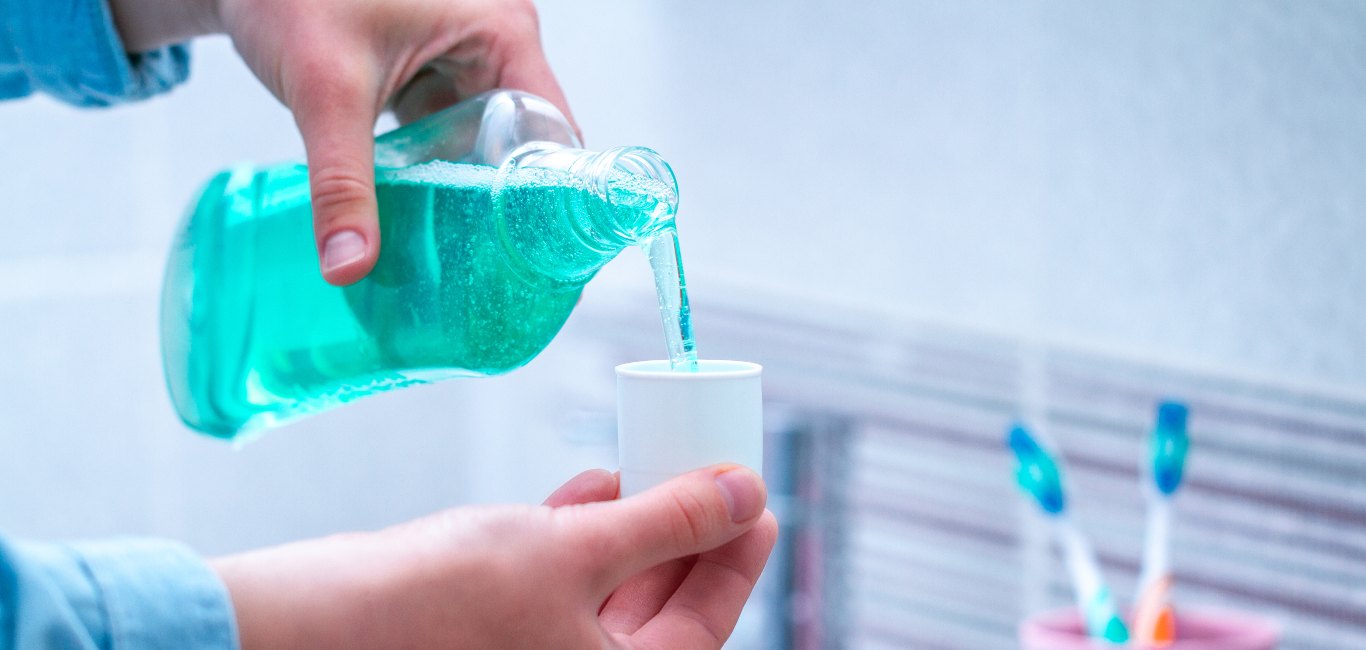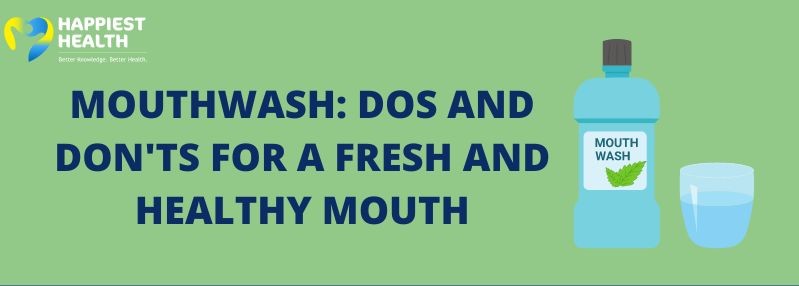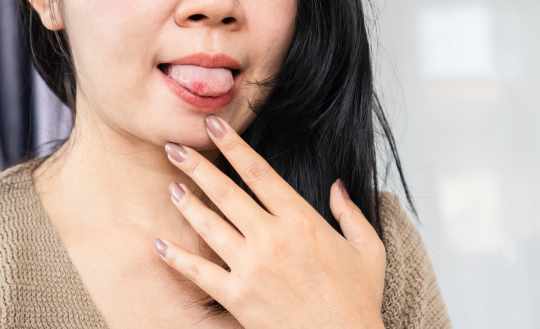
Aiswarya Sekar (26), from Thoothukudi, Tamil Nadu, shares her experience of using orthodontic braces (a fixed appliance used for aligning teeth) with Happiest Health. “Brushing became difficult as the braces would interfere with the bristles and cause discomfort,” she says.
Moreover, it led to yellowish teeth and swollen gums, she adds. The dentist then advised her to use a mouthwash for three months.
Aiswarya’s mouth felt clean and refreshed, and the food particles stuck to her teeth were effectively removed after using it.
The mouthwash acts as a cleaner that captures the food particles stuck in the spaces between the teeth where the toothbrush cannot reach. The liquid contains a chemical called chlorhexidine that gives a refreshing and cold sensation in the mouth.
Benefits of mouthwash
According to a 2022 study published in the Journal of Oral Health and Preventive Dentistry, individuals develop gum inflammation after one or two months of wearing braces as brushing is difficult, especially near molars (the back teeth). Moreover, braces result in the retention of food particles, plaque formation, and interruption of chewing and salivary flow.
In the study, individuals were divided into groups and asked to use an antiseptic mouthwash, herbal mouthwash, and a mouthwash with natural ingredients, for five months. It was observed that all of them were equally effective and there was a significant reduction in plaque formation, gum bleeding, and gum inflammation.
Types of mouthwash
- Fluoride – It contains sodium fluoride, an anticavity agent that strengthens the teeth and protects them against harmful oral microorganisms, say experts. It prevents tooth decay and plaque formation.
- Antiseptic – It reduces the bacterial count and oral and gum infections. Dr Deepa Natarajan, periodontist from Chennai, Tamil Nadu, recommends this to individuals who are at high risk for caries (tooth cavity) as it acts against the streptococcus mutans (bacteria that causes dental caries). It helps in the management of bad breath and keeps the mouth clean and hygienic.
- Natural – “It contains herbal ingredients, essential oils like tea tree oil or natural ingredients like extracts of aloe vera, neem, or tulsi that gives a pleasant smell and taste,” adds Dr Natarajan. It gives a refreshing feeling and removes the germs from mouth.
How does mouthwash help?
According to Dr Veena Shruthi D, dentist from Coimbatore, Tamil Nadu, mouthwash helps with the following:
- Heals recurrent oral ulcers and denture stomatitis (inflammation of palate due to the wearing of dentures for a longer period)
- Heals gums after scaling in individuals with diabetes
- It maintains oral hygiene in people who have dentures
- Relieves sore throat on gargling
- Reduces teeth sensitivity
- Physically challenged individuals, who cannot perform daily activities like brushing and flossing are advised to use mouthwash
Mouthwashes should be used under expert guidance and for the prescribed time only, adds Dr Natarajan.
A study published by the Journal of American Dental Association in 2018 shows that 42 per cent of adults above the age of 30 in the US, are affected by periodontal issues. It is a condition in which disruption of bone structure around the teeth, gum infections, bleeding gums, loss of gum tissue, and loosening of teeth are seen. Experts say that mouthwash can be used as a preventive measure to improve the symptoms of swollen, painful, and sensitive gums.
According to American Academy of Periodontology, mouthwash removes the food particles that the brush and floss have missed in between the teeth thereby preventing the periodontal condition.
How to use it?
Dentists prescribe mouthwash based on the severity of gum inflammation and oral condition of an individual. Though mouthwash is considered a healthy option for maintaining oral hygiene, its long-term use can act against the beneficial bacteria present in the mouth. Hence, one should always use it as per the instructions of the dentist.
Dr Natarajan gives the following instructions for using a mouthwash:
Mouthwash should not be used instead of brushing. A minimal quantity (15-20ml) of it should be used in one session. Diluting with water or using it undiluted depends on the oral condition. Individuals with burning sensations in the mouth should use it in diluted form.
Toothpaste and mouthwash should not be used simultaneously. If one is using a fluoride-based toothpaste, then the antiseptic mouthwash should be used at least 15 to 20 minutes later as it may interfere with the beneficial effects of toothpaste.
Mouthwash should be gargled for 30 to 60 seconds. One should rinse with water only after 10 to 15 minutes of using mouthwash. Food or drinks should be consumed half an hour after this regime.
In case of gum inflammation after scaling, one should use it for 15 days or a month. Mouthwash should not be used for a long time as it stains the teeth and alters the taste perception.
One should avoid using fluoride-based toothpaste and fluoride mouthwash as it leads to excessive fluoride exposure, say experts. One should avoid swallowing mouthwash. Children below 10 years of age should avoid using mouthwash, Dr Natarajan concludes.

















